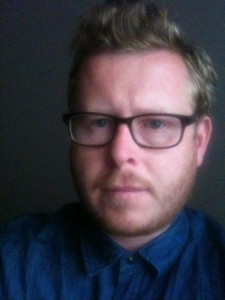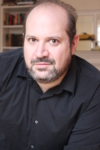 Last winter, Full Stop introduced “The Situation in American Writing,” a questionnaire adapted from The Partisan Review that asked questions about literature’s responsibility to address seismic changes in culture, the publishing industry, and the political and geopolitical landscape. That questionnaire, which featured responses from Marilynne Robinson, George Saunders, Victor LaValle, T.C. Boyle, Dana Spiotta, and dozens of other writers was illustrative of the concerns and preoccupations that writers carry with them when practicing their craft.
Last winter, Full Stop introduced “The Situation in American Writing,” a questionnaire adapted from The Partisan Review that asked questions about literature’s responsibility to address seismic changes in culture, the publishing industry, and the political and geopolitical landscape. That questionnaire, which featured responses from Marilynne Robinson, George Saunders, Victor LaValle, T.C. Boyle, Dana Spiotta, and dozens of other writers was illustrative of the concerns and preoccupations that writers carry with them when practicing their craft.
This year we are interested in the situation of writers, rather than writing, in the subjective experience of writing fiction (or in this case, poetry and criticism), rather than fiction’s responsibilities to respond to a rapidly changing world. To this end we are interested in examining the trying intellectual, creative, and emotional labor that is often unacknowledged or effaced in the public presentation of writing. What we’re interested in, to put it another way, is pathos.
This year, we’ve crafted a questionnaire asking writers about the effect writing has had on their physical, emotional, and economic health; on the idea of poverty being a precondition for writing well; on what makes writing truthful to one’s self and to readers. Ultimately, we are interested in the consequences of pursuing writing as a vocation.
Lee Rourke is the author of The Canal, winner of the Guardian’s 2010 ‘Not the Booker Prize’. He is also the author of the short story collection Everyday and the poetry collection Varroa Destructor, forthcoming from 3 AM Press.
Lee is an MFA lecturer at Kingston University in London, an ardent Manchester United supporter, and also happens to be very good at Twitter.
How has your decision to write affected your health? Has it had negative effects on your personal life?
I don’t enjoy writing. I never have. I find it hard work and it doesn’t come easy to me. So, on the whole, the task of writing: sitting still, concentrating for long periods of time, and, of course, the mind-numbing boredom of it, all culminates in generating a negative impact in me. Even when I’m at my happiest writing, which isn’t often, I’ll suddenly be struck with something pathetic like hand cramp (I write my first drafts longhand), my hand simply stops writing, it cramps and tightens until I have to release my pen with my other hand, which ruins any joy I may be experiencing at that given moment. Or, when I’m typing my first draft up on to my laptop I’ll suddenly want to stop what I’m doing and go off and do something far more interesting. It’s not a pleasurable thing for me and I frequently distrust those that say it is. I feel that my writing, and the actual effort it takes to write, begins to distance itself from me, from the outset, from the very beginning: the act of writing is literally something foreign to me, it feels unnatural. I’m unable to locate it for a start. I’m not sure where it comes from, and I’m certainly not in charge of its outcome. The more I write the further away I feel from it. I never feel that I am the ‘master’ of my pen, yet I write regardless.
Maurice Blanchot puts it better when he says in ‘The Space of Literature’: ‘Every writer, every artist is acquainted with the moment at which he is cast out and apparently excluded by the work in progress.’
I guess this sense of exclusion, my lack of authority, is essential to my writing: it being the moment when I am actually closest to it. It’s a strange kind of paradoxical need; one in which fosters a certain kind of suffering: the realisation that my own writing’s point of origin can never be reached (like in all writing). This is fascinating to me, truly fascinating.
Blanchot goes on to say: ‘The writer seems to be the master of his pen; he can become capable of great mastery over words and over what he wants to make them express. But his mastery only succeeds in putting him, keeping him in contact with the fundamental passivity where the word, no longer anything but its appearance – the shadow of a word – never can be mastered or even grasped. It remains the ungraspable which is also unreleasable: the indecisive moment of fascination’.
In regards to my health I don’t think the suffering this may cause me has damaged it in any significant way. I have been depressed about my writing at times, and I have become extremely angry with my writing, too, which probably isn’t good for my stress levels. I drink far too much coffee, which obviously isn’t good. But just like my own writing hasn’t, my suffering hasn’t hit the heights experienced by Joyce, Kafka et al, either – you know, real writers.
There is long tradition that links the craft of writing with poverty. Do you think that’s appropriate? Does poverty feel like the most appropriate condition for your practice as a writer?
I’m choosing to answer this question literally, because there are a few things that bother me aside from the philosophical and theoretical challenges this questions also posits. And besides, you want me to speak ‘authentically’ about my experience, right? – even though I can’t. So, here’s my attempt at some kind of authentic answer: it all depends on what you’re writing. If you’re a commercial writer then I feel you’re not really going to be a ‘poor’ writer, especially if you’re the sort of writer who keeps a keen eye on the current ‘literary’ marketplace (which the majority do) and you’re able to write in the way the current marketplace dictates. And anyway, the majority of writers today (successful or otherwise) are from comfortable, middle-class backgrounds, and I doubt many have ever experienced real poverty in the material sense, just as I haven’t. As Marx told us, the novel is a product of the bourgeoisie, formed to reflect bourgeois tastes. The poor were too busy working to bother with novels. Yet now, in spite of this dichotomy, there are more people writing novels than at any other point in the history of the novel. And Quelle surprise, the majority of these ‘novelists’ are from nice, university-educated, comfortable, middle-class backgrounds which have offered them a lifestyle choice in which they can ‘give writing a novel a go’ because ‘it looks fun’ and they want to be ‘successful’ and ‘famous’ writers. It just doesn’t ring true, something is lost, everything has become commoditised . . . even creativity itself.
I feel sick when I walk into a café in London for my ‘flat white’ and everyone sitting around the cramped, ill-fitting tables are writing into their iBooks, shoulders hunched, wide-eyed and bursting with studied irony and indifference. I hate it. This ‘creative’ lifestyle misses the point, I feel. Since when did we all have to show everyone we are ‘creative’ individuals? Why is everyone flagrantly writing in cafés? One of the many reasons we moved out of London (apart from the cost of living) to live by the sea was to be away from this proliferation of ‘creative’ living/environment. Out here, where we live, no one writes, or if they do it’s done in the privacy of rooms. There are no public displays of ‘creativity’. The other week I was in a pub discretely writing in my notepad when the barperson asked me what I was doing. “Writing,” I said. “Writing?” she replied. “Phew, I thought you were an inspector from the brewery”. You see, she’d never seen anyone actually writing in her pub, you know ‘creatively’ writing. She looked at me as if to say: what they hell are you writing for? I found this immediately refreshing.
To be a ‘writer’ these days isn’t what it used to be, it seems to me. You know, when writers and Literature actually mattered to people. Today, to be a writer is nothing more than a label, something to show off in public. The writer today is firmly rooted in the marketplace. The writer is constantly showing off in this arena, in the hope that their writing might be commoditised enough to allow the writer to keep showing off to an ever-widening, paying audience.
Poverty possibly spurs me on, but when I was poorer than I am now, I certainly wasn’t writing. So, I guess it doesn’t define me, especially in the way it did the great writers. And besides, I’m not poor, nor have I been, not really. I’m not rich either, but if I was I would obviously still write, and certainly about the same things as I do now. The only difference would be that I’d probably set up my own non-profit publishing house in the hope to publish the sort of Literature the commercial houses ignore.
In a rare 1983 interview the enigmatic and often dour Romanian writer Emil Cioran speaks about only reading Nietzsche’s letters because he became concerned with how untruthful Nietzsche’s published works seemed when read against the miserable condition of his day to day existence (isolated, weak, sickly, certainly not characterized by any sense of vigor). Is there any sense in which the truth of one’s condition should be related to the truth of one’s writing, even if in an oblique sense?
I’m interested in Cioran’s idea of everyday decay and suffering. I guess he’s looking after his own interests here, there’s certainly some truth in it – bearing in mind Cioran courted the notion of anti-philosophy in his writings, I think. He says: ‘Malfunctions of our organs determine the fruitfulness of our minds: the man who does not feel his body will never be in a position to conceive a living thought [. . .] The man whose existence does not constitute a disease both vigorous and vague can never establish himself among problems nor know their dangers’. Cioran’s truth is an all-encompassing truth, a physical one, rooted in everyday existence. Beckett knew this, as did Joyce, Kafka et cetera. Decay, real physical decay, is essential to writing. Camus was tapping in to this when he mentioned that man does not understand he is already dying by the time he reaches thirty. Nietzsche’s heroics (and Heidegger’s, too) is a smokescreen, a yearning away from decay, through it. From melancholy, too . . . from existence, even. It’s why all bad fiction has always purported to ease the pain of living, rather than attempt to acknowledge all fiction, writing, whatever, is symptomatic of our pain.
I think Cioran found the sort of philosophical vigour to be found in the writings of Nietzsche somewhat abhorrent, the ‘happiness’ of man sickened him. I like it when he says: ‘We rightly scorn those who have not made use of their defects, who have not exploited their deficiencies, and have not been enriched by their losses, as we despise any man who does not suffer at being a man or simply at being’.
To a certain extent it can be said that I suffer as a writer, the truth of my condition is that I cannot transcend it, no matter how much I plunge into its depths in an heroic attempt to bring up my own ‘truth’ into the cold light of day, you know, words onto a blank page and all that. I can either accept this failed transcendence (think: Bataille and Beckett, and more recently McCarthy and Critchley, et cetera), or I can live a lie and argue that my words are my own authentic truth. Which, I’m happy to say, they’re not. So, when Coiran cleverly states: ‘When we cannot be delivered from ourselves, we delight in devouring ourselves’, I can’t help but think: that’s it, that’s the writer’s life right there!
I would argue the truth of one’s condition is essential to writing, but it doesn’t correspond in any way with the truth of one’s writing, because all writing is untruthful.
Are you envious of other people’s success? If so, are you more envious of people’s success in your field or outside of it? Why?
I’m not really envious of successful literary novelists because their literature, the default ‘literary’ mode to be found in today’s marketplace, has nothing to do with me. I don’t really recognise it as Literature. It bears no resemblance to the sort of Literature publishers like Dalkey Archive Press are publishing, which is the sort of stuff that floats my boat.
It also depends on how we define the word ‘success’. My novel ‘The Canal’ was well received critically but it didn’t make me a multi-millionaire, but most books, especially those which fit the default mode as I see it can make their authors a pretty penny. ‘Success’ is a strange business.
Aside from writing, do you have any other marketable skills? If so, are you ever tempted to cease writing fiction entirely so you can live a more stable life?
I teach on the MFA at Kingston University. There’s a certain skill involved in this, and I make a decent living through it, but I couldn’t give up writing to concentrate solely on this as the two live side by side. I have worked in publishing in the past, as an editor, so I could do that. My life has always been relatively stable, obviously society demands I make sufficient money in order to participate in it enjoyably and comfortably, and I also have bills to pay and people to feed (I am about to become a father, for instance), so the desire for money is an unfortunate constant in my life. Chrematology is a dirty business, quite literally; you only have to read Shakespeare and Joyce to understand that. But that’s okay, I can handle that.
Give one example in which you had high hopes for success (artistic, commercial, or otherwise) but had those hopes dashed.
Always. I’m never satisfied. I look at my books, everything I’ve written and think: is this it? Is this all I’m capable of? Is this all it’s going to bring me? But that’s only normal, right?
Do you feel like the world owes you a chance to make a living as a writer?
The world owes me nothing. The world is indifferent to me, it feels nothing for me. I am merely attempting to secure some sort of foothold on the sheer cliff face up to its sumptuous plateaus.
What is the strongest emotional reaction you have ever elicited from a reader, either in your written work or during a reading? What is the strongest emotional reaction you have ever elicited from yourself during the writing process?
Readings are strange events in which certain behavioural patterns are endlessly repeated. I like the people who attend my readings, they seem to like what I have to say, and like the way I read. They applaud and smile politely when I finish my reading. I thank them and they ask me questions that I like to answer. It’s all very nice and polite. I don’t really recognise ‘emotional’ responses to my writing. I wouldn’t know what they are. Not really. I’ve received some rather odd emails I guess, but so have plumbers and airline pilots, so it’s not really something that causes me a problem. It’s normal human behaviour.
I think the strongest ‘emotion’ writing maybe has elicited from me is one of contempt and disgust, an uncomfortable presence within me, with the whole thing: writing. Some writers yearn for the spotlight. I’m talking about the sort of writer who seeks to become a ‘public intellectual’, whatever that is. I would suppose the recognition of readers’ ‘emotional’ response to their work is essential to their own perceived standing in the echelons of ‘Literature’, but for someone like me, it’s not that important, as Bram Van Velde once said: aim low.
When are you at your most truthful as a writer?
To continue on from your earlier question about ‘condition’: I’m at my most truthful as a writer when I’m acknowledging its untruthfulness. It’s the best I can do.
This post may contain affiliate links.







